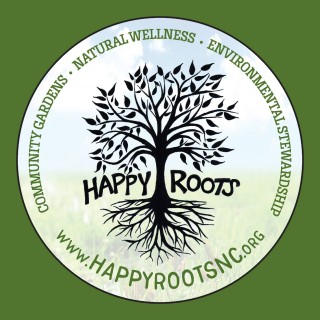
Q: How do you do horticulture therapy with students? What does this mean for Happy Roots?
A: Happy Roots’ first school project was Henderson Independent Middle and High School, an alternative school for challenged, marginalized and underserved youths. Five years ago, we opened up this abandoned greenhouse, started sowing seeds with students while practicing horticultural therapy, then began giving those plants away to other schools and centers. Now we have about thirty different garden locations, twenty of them schools, and Henderson remains the hub and heart of Happy Roots’ entire operation. For some people, their outlet is art, music, sports… Horticultural therapy is absolutely what did it for me. It helped me through an incredibly difficult time in my life and I just had to make sure others knew how healing this was. There are two females in particular I was working with at Henderson where gardening ended up being a significant emotional outlet and healthy coping tool. The success stories are endless, and I am thankful for every day of this work.
Q: What culinary activities are Happy Roots involved in?
A: Along with school Foods & Nutrition educators, we have made smoothies, kale chips, tomato chutney, cucumber salads, sweet potato pie and other recipes fresh out of the garden. I think it’s amazing and necessary for folks to see food grown from seed to fork. It gives a whole new respect for what we consume and how we nourish our bodies. We have also hosted events at our local community garden with Chef Jordan Walker who provides a youth cooking program. Prior to the pandemic, we also hosted a free summer cookout series called Grillin’ At The Greenhouse, where we partnered with local farmers to feed our community all locally sourced foods while also providing an opportunity to congregate, break bread and learn about these foods directly from the farmers that grew them.
Q: How do you connect school gardens with classroom curriculum?
A: We are firm believers that any class can be taught out of the school garden… all areas of science obviously, and lots and lots of math! But when you get into social studies, history, and language arts, we can embrace diversity and build relationships through researching cultural differences in gardening practices, diets, and food consumption. Students could interview local farmers about agricultural history, create a map, create and publish newsletters. The possibilities are endless. Life lessons are learned throughout the gardening seasons.
Q: How are you advocating for school gardens in Rowan County?
A: I will be presenting to our Board of Education next month advocating to fund these programs. Some counties are investing and funding this position already, and I believe, in the future, this will be everywhere. This work is necessary.
We are so thankful for Happy Roots and all of the incredible work you do in Rowan County! You are greatly appreciated! If you’d like to learn more about Happy Roots you can view their website (happyrootsnc.org) and follow them on Facebook (@happyrootsnc).